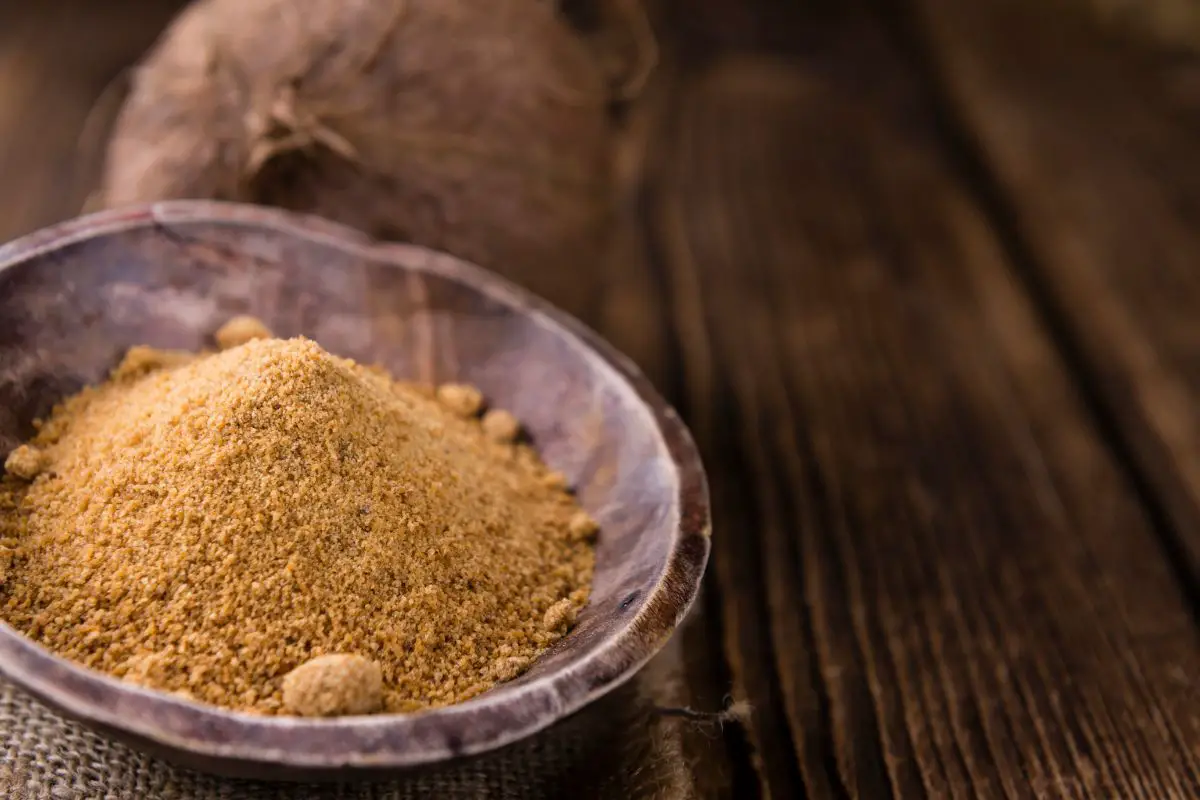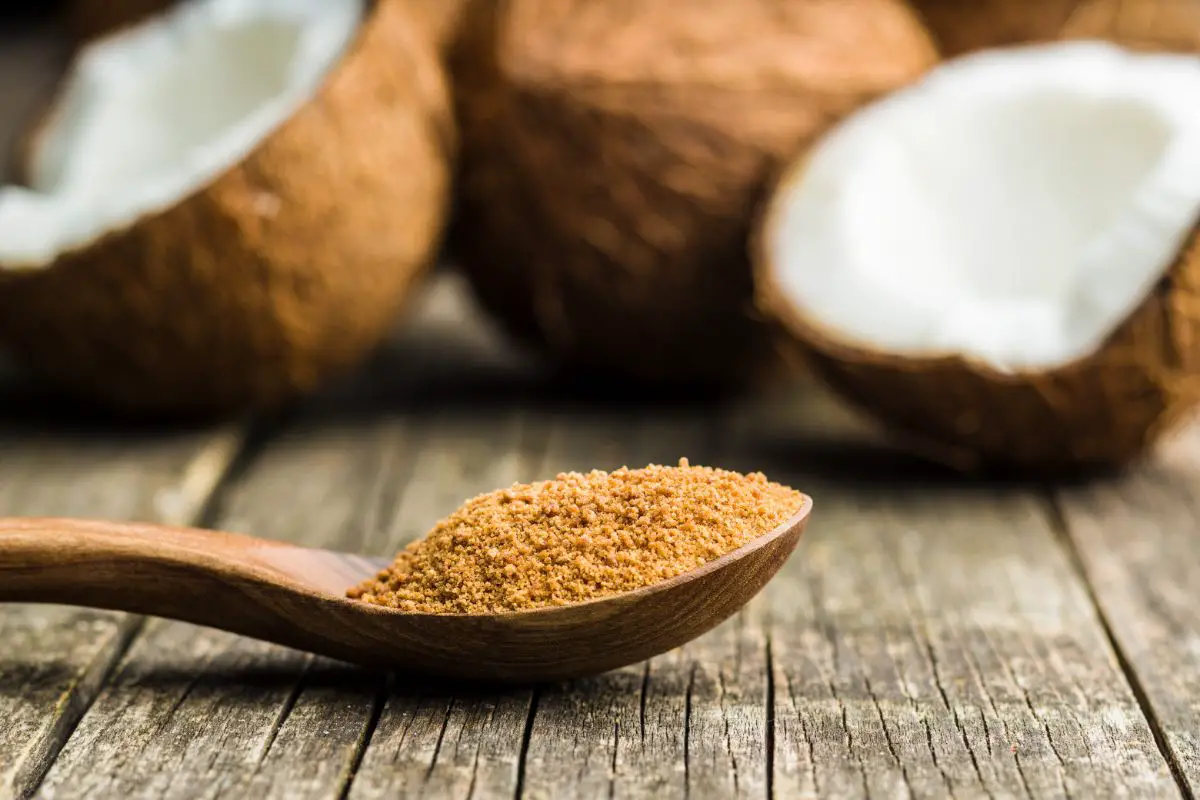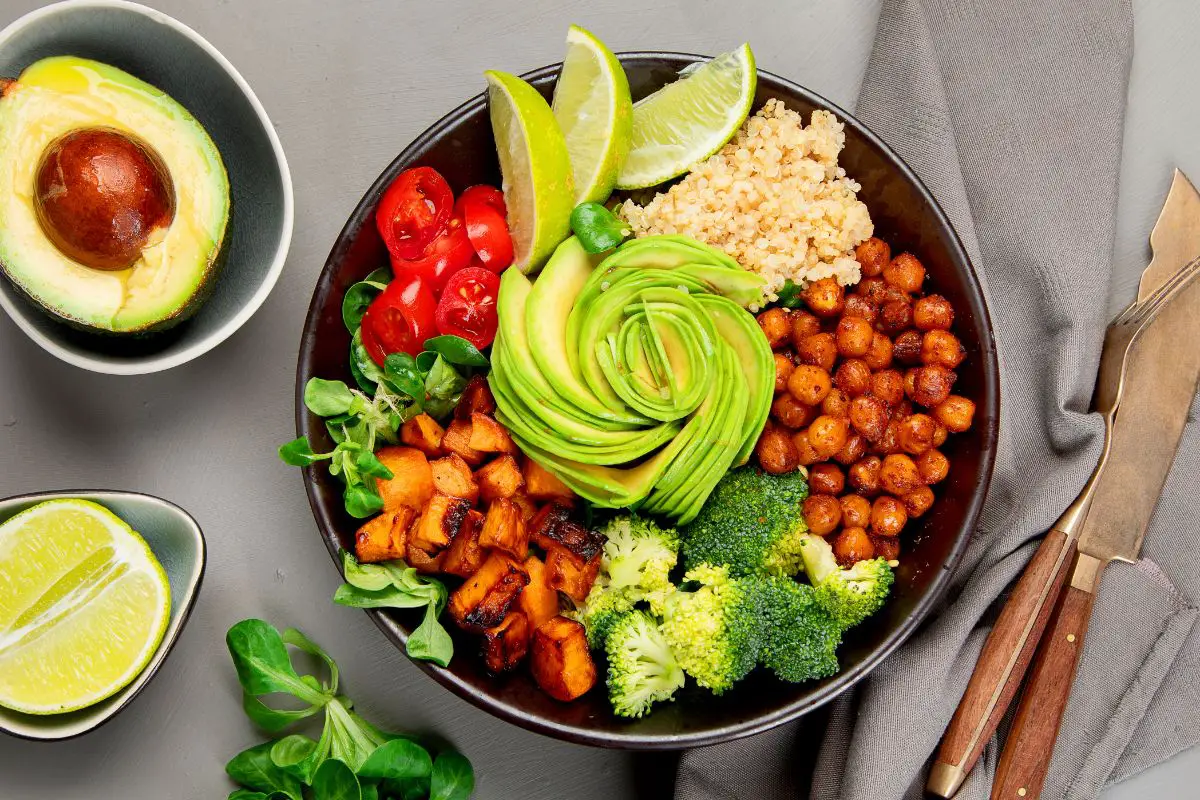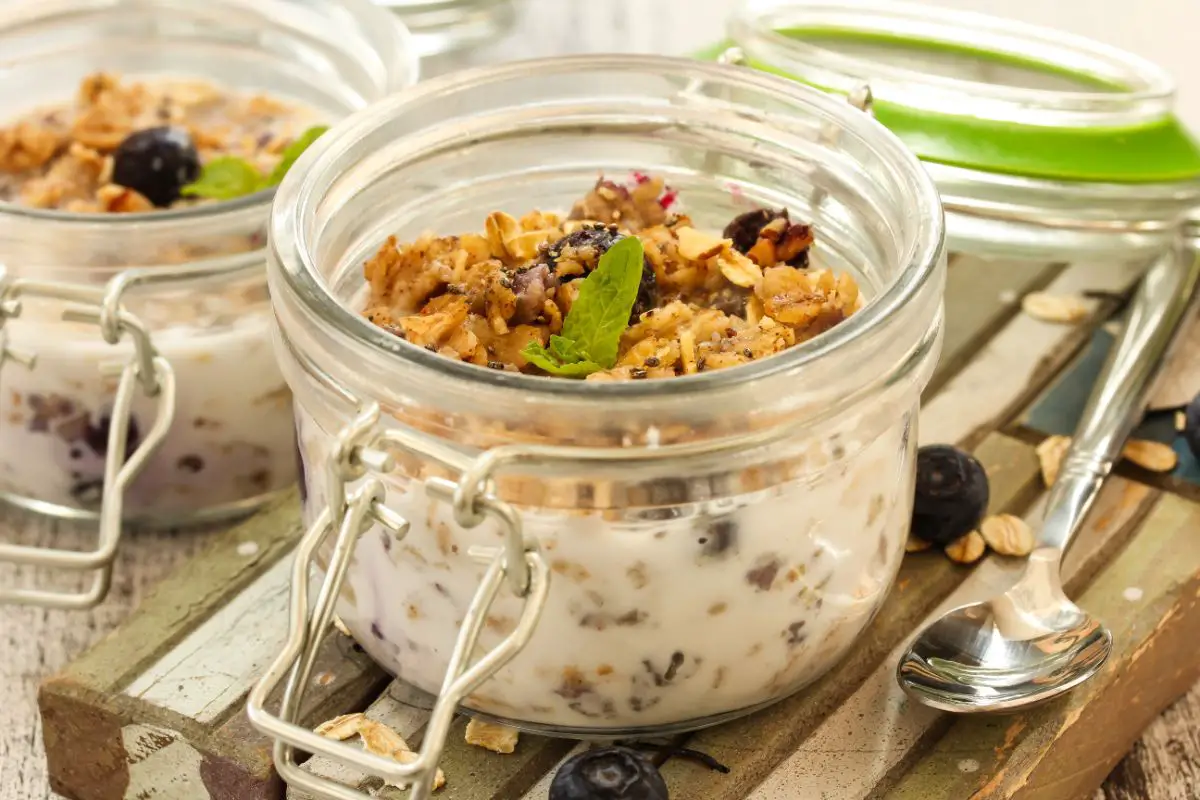We have all heard about the dangers of consuming too much sugar.

Excess sugar intake can lead to a number of health effects, such as weight gain, type 2 diabetes, and dental decay.
That is why it is best to consume sugar in moderation.
When it comes to a paleo diet, however, most sweeteners are not considered paleo-friendly.
This is because a paleo lifestyle follows the same diet that early humans are thought to have eaten.
This mainly contains meat, fish, fruit, and vegetables and excludes processed foods and cereal products.
Because early humans had no access to the sweeteners available today, many can not be eaten as part of a paleo diet.
One type of sugar that can arguably be considered paleo, though, is coconut sugar.
This is because it would have been available, in some form or another, during the Paleolithic era.
Nevertheless, like all sugars, coconut sugar should only be used in moderation as it can also raise glucose levels.
Want to know whether you can start using coconut sugar in your paleo diet?
Read on as we find out whether this type of sugar is indeed paleo-friendly and we’ll have a look at some of its properties too.
Coconut Sugar: What Is It?
Coconut sugar derives from the coconut palm tree.
It is collected from the tree’s sap via a cut in the tree’s flower buds.
Once the sap has been collected, it is left over a high heat until its water content has evaporated. The end result is coconut sugar.
When a palm tree’s blossom has released its sap for coconut sugar production, that particular tree will no longer be able to grow coconuts.
This has led to a growing concern as the demand for coconut sugar has increased over the last few decades.
The more coconut sugar the world has, the fewer coconuts may be available. This has led to an increase in the prices of coconut oil, coconut milk, and coconut cream worldwide.
Coconut Sugar Properties
Coconut sugar tends to have a caramel-like flavor with a brownish hue, very much like brown sugar.
It is often used as an alternative to brown or white sugar in baking and cooking, and can be used in the same quantities as many other sweeteners.
Coconut sugar is typically marketed as a healthier substitute for other types of sweeteners due to its lower glycemic index (GI).
Therefore, it doesn’t cause a rapid spike in blood sugar levels in the same manner as white sugar.
That being said, the University of Sydney found that the GI of coconut sugar is around 54 which is higher than both honey and cane sugar.
These results do contradict other studies, however, so more research is required.
It also contains traces of vitamins and minerals, including zinc, potassium, and iron.
Unfortunately, you would need to consume large amounts of coconut sugar to read any of its micronutrient benefits.
Overall, coconut sugar is not overly healthy. It remains a form of sugar so should only be consumed in moderation as part of a balanced diet.
Its calorie content is relatively high with a similar or same amount as regular sugar.
Altogether, coconut sugar is composed of around 70 to 79 percent sucrose, nine percent fructose, and three percent glucose.
Considering that sucrose already contains a high amount of fructose, which we should try to avoid, coconut sugar’s beneficial properties start to dwindle.
Coconut Sugar – Paleo Or Non-Paleo?
So, the main question remains – is coconut sugar paleo or not?

Generally speaking, coconut sugar is considered paleo. But, experts love to debate this with many believing it is not paleo-friendly.
In short, coconut sugar is largely regarded as paleo appropriate due to the fact that it was probably readily available to our ancestors during the Paleolithic era.
Because coconut sugar is derived from the sap of a coconut palm tree, it is considered natural and a minimally processed source of sweetness.
It doesn’t contain any preservatives or artificial additives (in its standard form) and is generally considered a healthier alternative to refined sugar.
As we stated above, however, not all paleo practitioners agree on the inclusion of coconut sugar in a paleo diet.
Many argue that any type of added sugar, even when natural, should be avoided in a paleo diet, simply because it was not available to our Paleolithic ancestors.
Ultimately, whether coconut sugar is considered paleo-friendly depends on individual interpretation and preferences within the broader paleo community.
You need to decide how you react to sugar, especially before your paleo journey begun.
Coconut sugar can be used as a healthier alternative to refined sugars but should only be consumed on an occasional basis for baked treats.
Because the process of coconut sugar collection is simple and requires no modern farming techniques, it’s safe to assume that our ancestors had access to the same techniques and sugar.
Therefore, it can generally be considered one of a few sweeteners that can be included in a paleo diet.
Nonetheless, the primitive methods of collecting the sap and drying it have been replaced with contemporary techniques that may not be considered paleo.
Things To Consider When Using Coconut Sugar
Although coconut sugar is regarded as an au naturel type of sweetener, it isn’t healthy to consume on a regular basis.
Like honey, small doses of it will not do you any harm, but using it as a sweetening additive frequently can cause negative health effects.
If you’re trying to lose weight, coconut sugar is not the answer to your sweetening prayers.
Gram for gram, coconut sugar has an equal amount of calories as standard ordinary sugar. But, occasional coconut sugared treats are considered safe overall.
In Conclusion
Modern day humans love sugar. After all, over 11 million metric tonnes of the stuff is consumed by Americans every year, and this number is only growing.
Coconut sugar has become a popular alternative for many following a paleo diet (see also “Is Cane Sugar Paleo?“).
Whether it is true paleo may still be up for debate but many believe it to be one of the few sweeteners that is paleo appropriate.
- How To Make A Paleo Detox Smoothie: Berry Cherry Green Edition - April 18, 2023
- How To Make Spicy Paleo Paprika And Thyme Veggie Fries - April 18, 2023
- 15 Mouthwatering Keto Apple Recipes You Need To Try Today - April 18, 2023







![The Ultimate Healthy And Delicious [And Cheap] Breakfast Guide The Ultimate Healthy And Delicious [And Cheap] Breakfast Guide](https://gracefullplate.com/wp-content/uploads/2022/12/The-Ultimate-Healthy-And-Delicious-And-Cheap-Breakfast-Guide.jpg)

